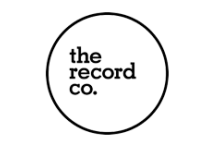Founded in 2010 by Berklee College of Music graduate Matt McArthur, TRC is a community music workspace designed to serve all Bostonians. Young and old, professional artists and music hobbyists, rock ‘n’ rollers and jazz aficionados (and every genre in between!)—our facility offers ALL music makers the opportunity to produce high-quality creative materials on their own terms. We fill a particularly urgent gap for young and emerging musicians, as few local options exist for honing their ... Czytaj dalej
Founded in 2010 by Berklee College of Music graduate Matt McArthur, TRC is a community music workspace designed to serve all Bostonians. Young and old, professional artists and music hobbyists, rock ‘n’ rollers and jazz aficionados (and every genre in between!)—our facility offers ALL music makers the opportunity to produce high-quality creative materials on their own terms. We fill a particularly urgent gap for young and emerging musicians, as few local options exist for honing their skills and producing marketable artistic products once they graduate from music-oriented institutions or become too old for youth-focused music programs.
As a public resource, TRC is akin to a library. In a library, local residents from all walks of life can access books or other cultural media for personal or professional purposes. Similarly, TRC is a facility where diverse individuals and groups can convene and use the resources provided to create their own media. Like libraries, we impose only basic structure; allowing users to create however they prefer. Our eight-year track record of steady growth shows that this format works.
TRC’s longest-running service is offering affordable access to our two, professional-grade recording studios. We now host more than 1,400 recording sessions each year. TRC provides workspace with equipment and infrastructure only—we invite music makers to employ their own creative and technical staff. This format is unique in our market. It gives music makers the ability to vet and hire according to their own specifications, and it offers a venue for recording engineers and music producers to build and run their own freelance businesses. Many of our users live near Boston’s Newmarket Industrial District, where TRC is located, though we also routinely welcome studio users from other corners of the city and state. Within our walls, Boston Music Award winners interact with young music enthusiasts, spoken word artists collaborate with hip-hop musicians, and seasoned music industry veterans meet and mentor artistic newbies.
Our current facility is now operating at capacity, providing music making space and tools to more than 3,500 people each year. This year, we are building an expanded facility at our current address to grow our reach and impact, and to better meet the needs of Boston’s diverse music making community.
Over the next 18 months, we will transition from offering two recording studios in our current facility to providing 19 rooms in our new space—four recording studios and 15 soundproof suites with a complement of musical instruments and amplification, which can be used flexibly.
Our new facility will be located in the same building in a street-level space on Massachusetts Ave. For the first time, music makers will be able to see TRC’s interior from the sidewalk and make appointments for rehearsal and recording sessions on the spot. This real-time availability of TRC’s resources is a big step forward—it enables our services to fit our belief that groundbreaking music and the community around it can be (and often is!) created spontaneously, not on a fixed schedule.
Aside from increasing the number of community users we reach, we also want to grow as a resource for underrepresented music makers, including women, artists of color, and members of the LGBTQ+ community. With a steep uptick in TRC’s user base during the first three years of operating our new facility, we project major growth in our earned income. As a result, we will be much more sustainable and better positioned to leverage philanthropic support to pilot new initiatives and to more deeply engage with our most culturally marginalized users.
Ukryj cały tekst